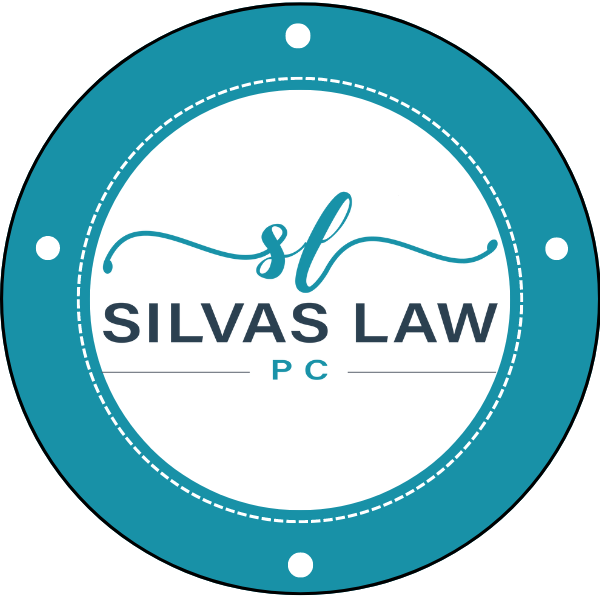Selling Real Estate or a Business? Avoid Capital Gains Tax with a Charitable Remainder Trust
If you have a sale of real estate or assets coming up that will result in you owing capital gains tax, you may want to give us a call to discuss whether to set up a Charitable Remainder Trust (CRT) first. Think of it this way: would you rather pay taxes and send your hard-earned money to the government, or use that same money to provide yourself with a lifetime of income and support your favorite charity at the same time?
CRTs offer a number of benefits to everyone involved. These trusts allow you to contribute to your most beloved charities, while also generating a valuable extra source of income for the beneficiaries, which can assist with retirement, paying off taxes, or be used for additional estate planning purposes. Such trusts aren’t for everyone, so call us to see if a CRT fits in with your planning goals.
HOW A CRT WORKS
A CRT is what’s called a “split-interest” trust, meaning it provides financial benefits to both the charity and the non-charitable beneficiary. The non-charitable beneficiary can be your spouse, child, another heir, or even you.
Here’s how these unique trusts work: when you set up a CRT, you name a trustee, an income beneficiary (or beneficiaries), and a charitable beneficiary. Then, you’ll contribute your appreciated asset to the CRT, and the trustee will sell, manage, and invest the asset(s) to produce income that’s paid to the non-charitable beneficiary.
Normally, the sale of these assets would generate capital gains taxes. But instead, you get a charitable deduction for the donation when you donate the assets to the CRT, and the CRT doesn’t pay capital gains tax upon sale of the appreciated assets. Sounds like a win/win, right?
After sale of the appreciated assets, the cash generated is invested by the trustee, and the non-charitable beneficiary receives income from the trust, which is paid out either annually, semiannually, quarterly, or monthly, depending on how the trust is set up. And if income is not paid out, it can accumulate in the trust and not be subject to income tax, further growing in value. Then, at the end of the non-charitable beneficiary’s life, whatever assets “remain” (hence the name “remainder” trust), pass to the charity or charities named in the trust.
The trustee can be yourself, a charity, another person, or even a third-party entity. Since the trustee (if it’s not you) is not only responsible for seeing that your wishes are properly carried out, but also for managing the trust assets in accordance with complex state and federal laws, it’s vital that the trustee you select has experience with financial management, and ideally, with trust administration.
You can use the following types of assets to fund a charitable remainder trust:
- Publicly traded securities
- Some types of closely held stock (Note that CRTs cannot hold S-Corp stock)
- Real estate
- Certain other complex assets
If you have assets you think might be useful for funding a CRT, contact us your Personal Family Lawyer® to see if a CRT might be a good fit for your estate planning goals.
MAIN TYPES OF CRTS
There are two main types of charitable remainder trusts, both of which are based on your options for how the trust income is paid out.
CHARITABLE REMAINDER ANNUITY TRUSTS (CRATS)
The beneficiary can receive an annual fixed payment using a Charitable Remainder Annuity Trust. With this option, the income payments from the trust will not change, regardless of the trust’s investment performance. With this type of trust, additional contributions to the trust are not allowed.
CHARITABLE REMAINDER UNITRUST TRUSTS (CRUTS)
With a Charitable Remainder Unitrust, the beneficiary is paid a fixed percentage of the trust’s assets, and the payouts fluctuate depending on the trust’s investment performance and value. Unlike with CRATS, additional contributions can be made with this type of trust.
TAX BENEFITS OF CRTS
Since CRTs are used primarily to reduce taxes, they come with some significant tax breaks. As mentioned earlier, you can take a partial income tax deduction within the year the trust was created for the value of your donation. The partial tax deduction you receive is based on the trust’s type and term, the projected income payments to the charitable beneficiaries, and interest rates set by the IRS, which are determined based on the growth rate of trust assets.
That said, your deduction is limited to 30% of your adjusted gross income. And if the donation exceeds that limit, you can carry over any excess into subsequent tax returns for up to five years.
Again, profits from appreciated assets sold by the trustee aren’t subject to capital gains taxes while they’re in the trust. Plus, when the trust assets finally pass to the charity, that donation won’t be subject to estate taxes either. Such hefty tax breaks can seriously add up, so if you have the means to set such a trust up, they can be quite beneficial for all parties involved, so if you think such a trust might be right for you, definitely meet with us to discuss your options
It’s important to note that the beneficiaries will pay income tax on income from the CRT at the time it’s distributed. Whether that tax is capital gains or ordinary income depends on where the income came from—distributions of principal are tax free.
DON’T GO IT ALONE
CRTs come with very specific and complex requirements surrounding their creation, operation, and the responsibilities of the trustee, so if you are considering setting up a CRT, it’s vital that you consult with a lawyer experienced with such trusts. To this end, if you have highly appreciated assets you’d like to sell while minimizing tax impact, maximizing income, and benefiting charity, call us so we can determine the best way to achieve your charitable objectives, while maximizing your tax-saving and other financial benefits. Contact us today to learn more.

This article is a service of Tammy Silvas, Personal Family Lawyer®. We do not just draft documents; we ensure you make informed and empowered decisions about life and death, for yourself and the people you love. That's why we offer a Family Wealth Planning Session™, during which you will get more financially organized than you’ve ever been before and make all the best choices for the people you love. You can begin by calling our office today to schedule a Family Wealth Planning Session and mention this article to find out how to get this $750 session at no charge














